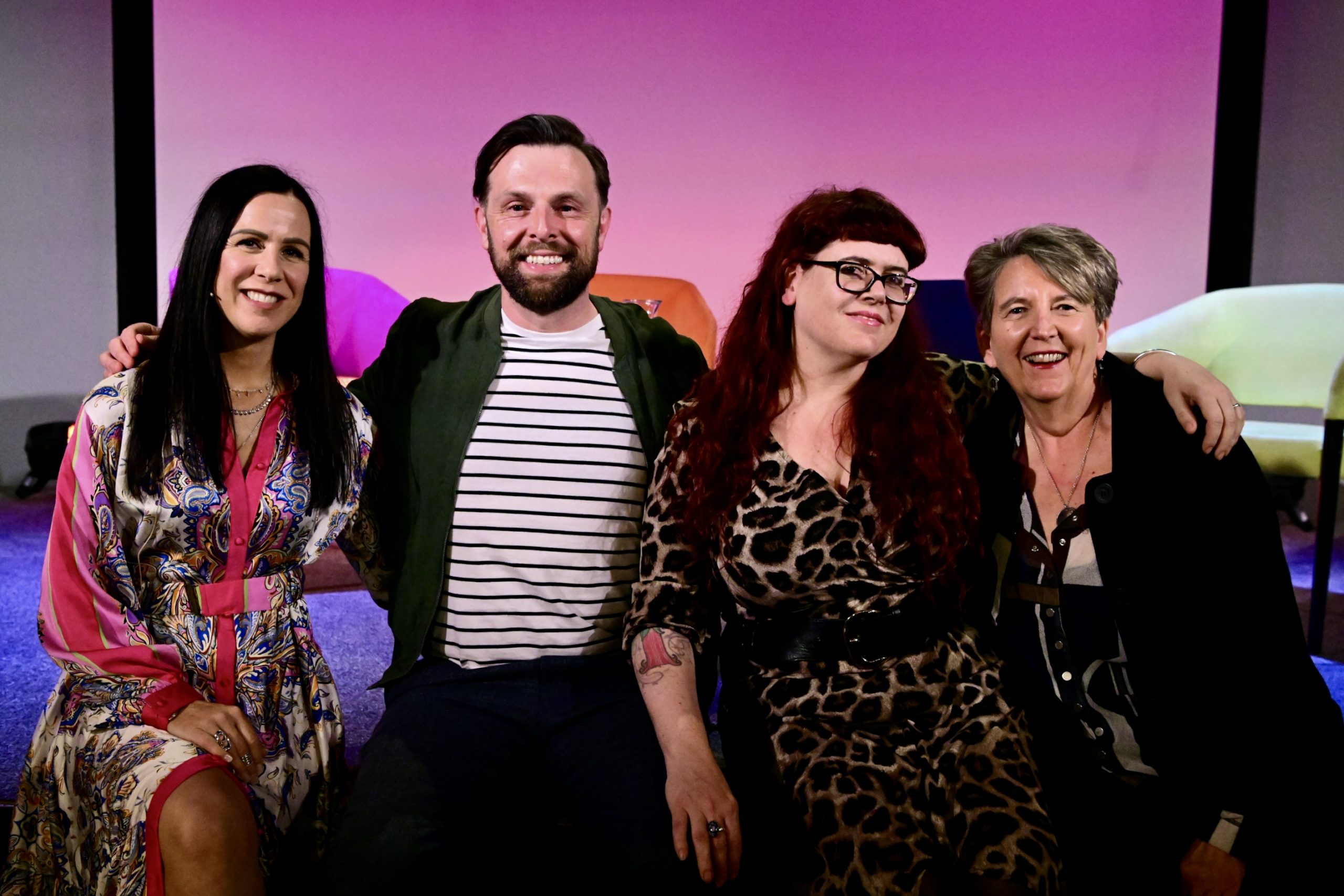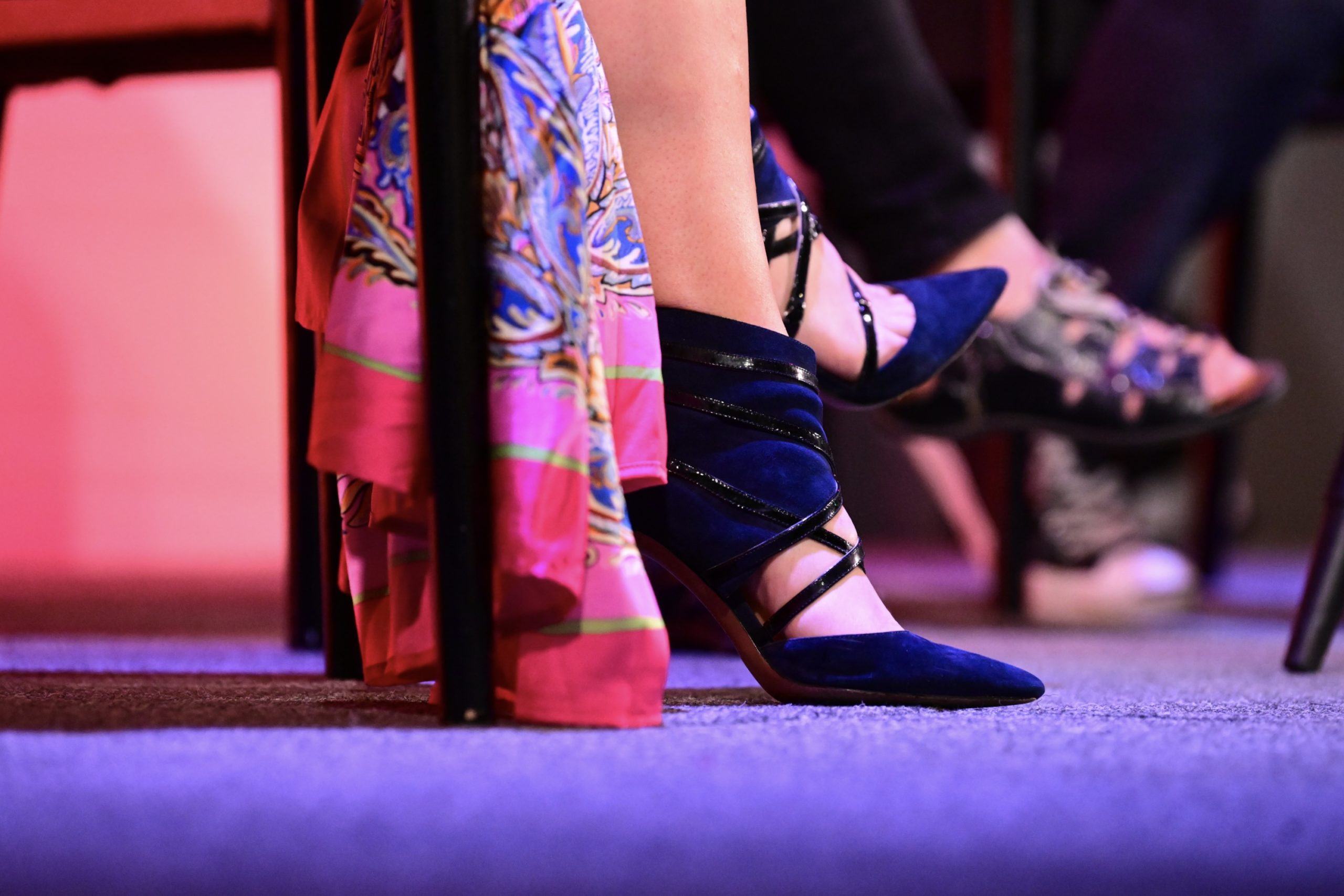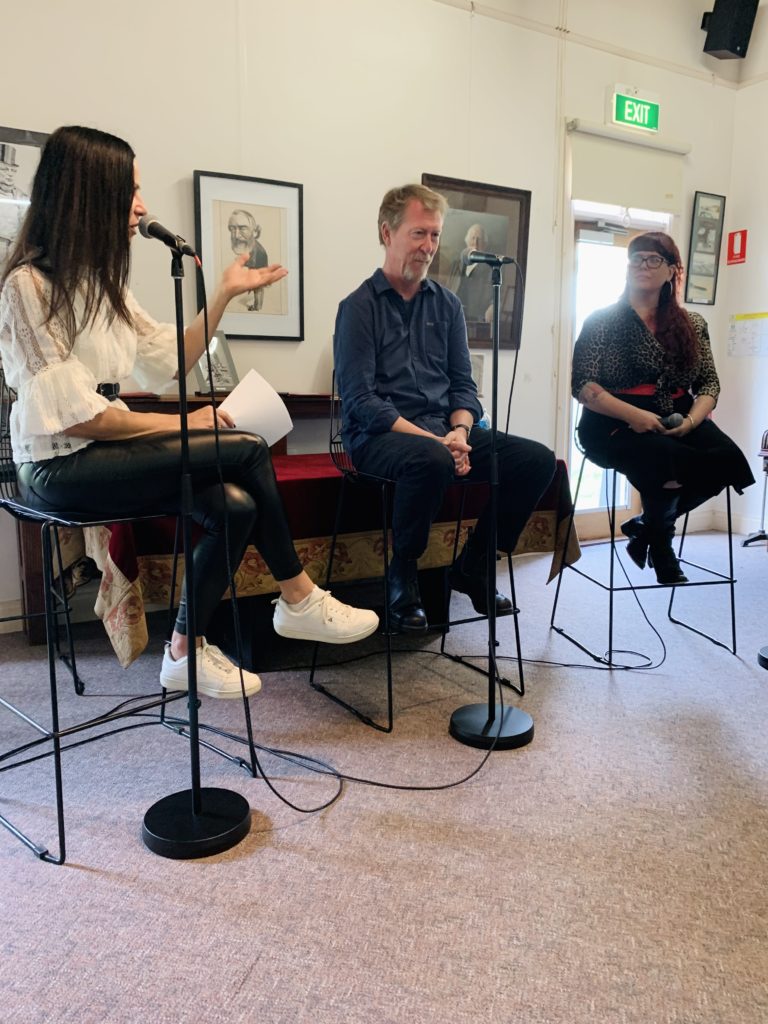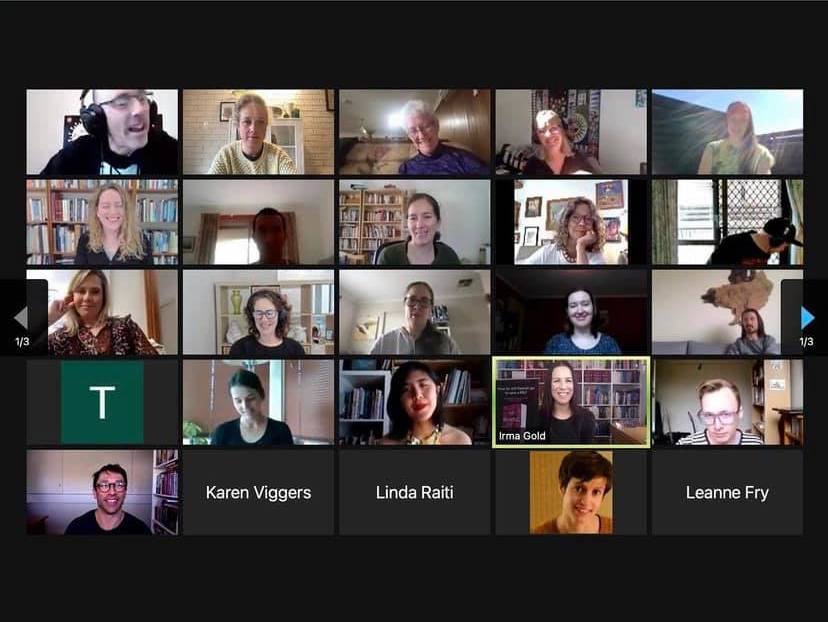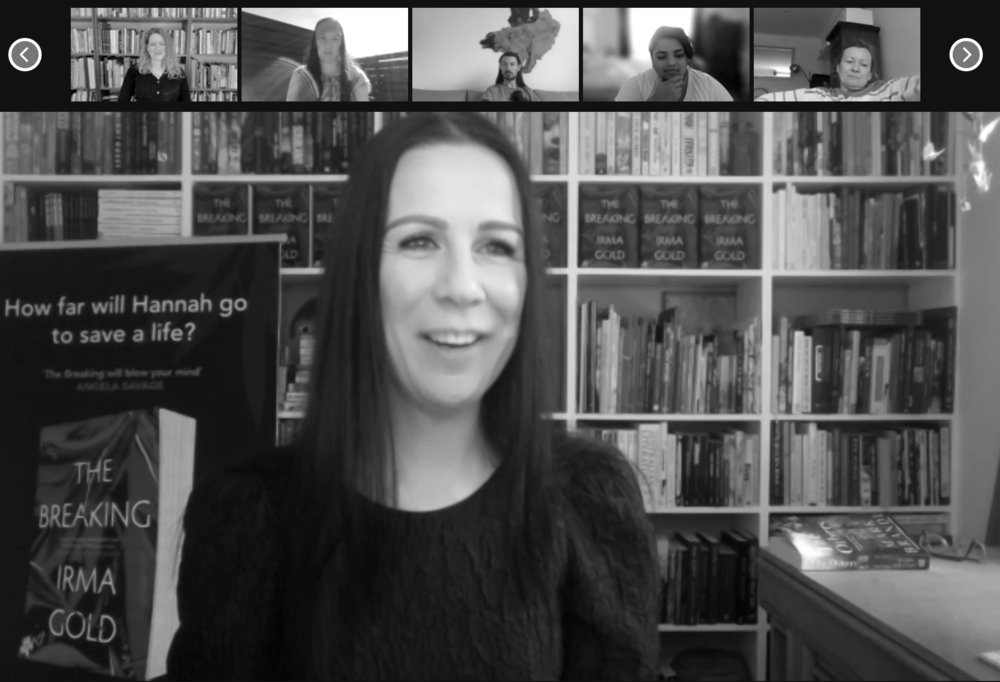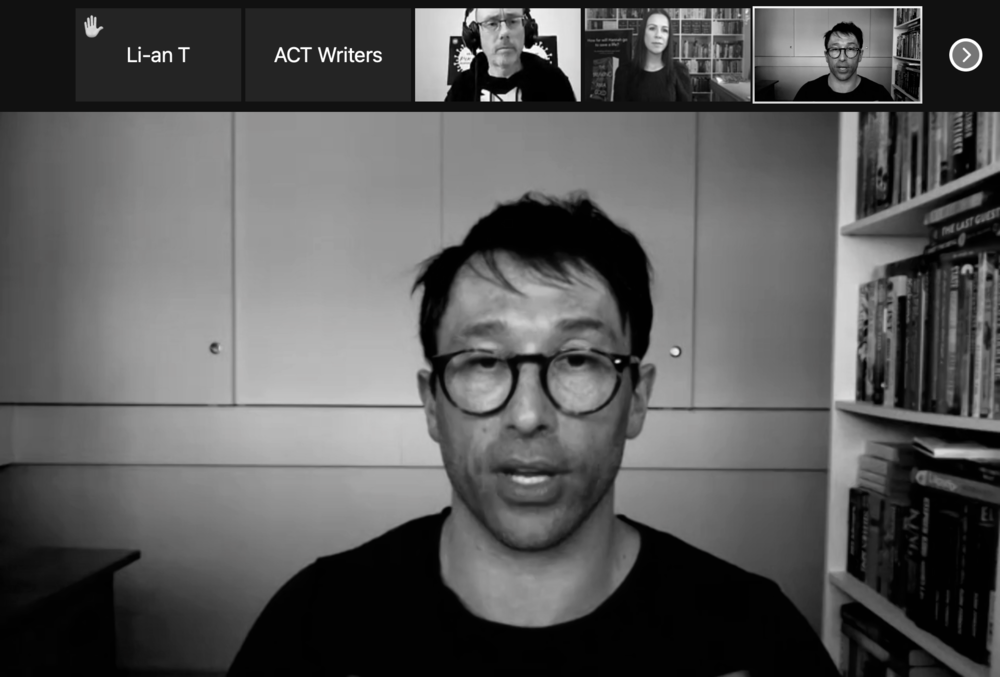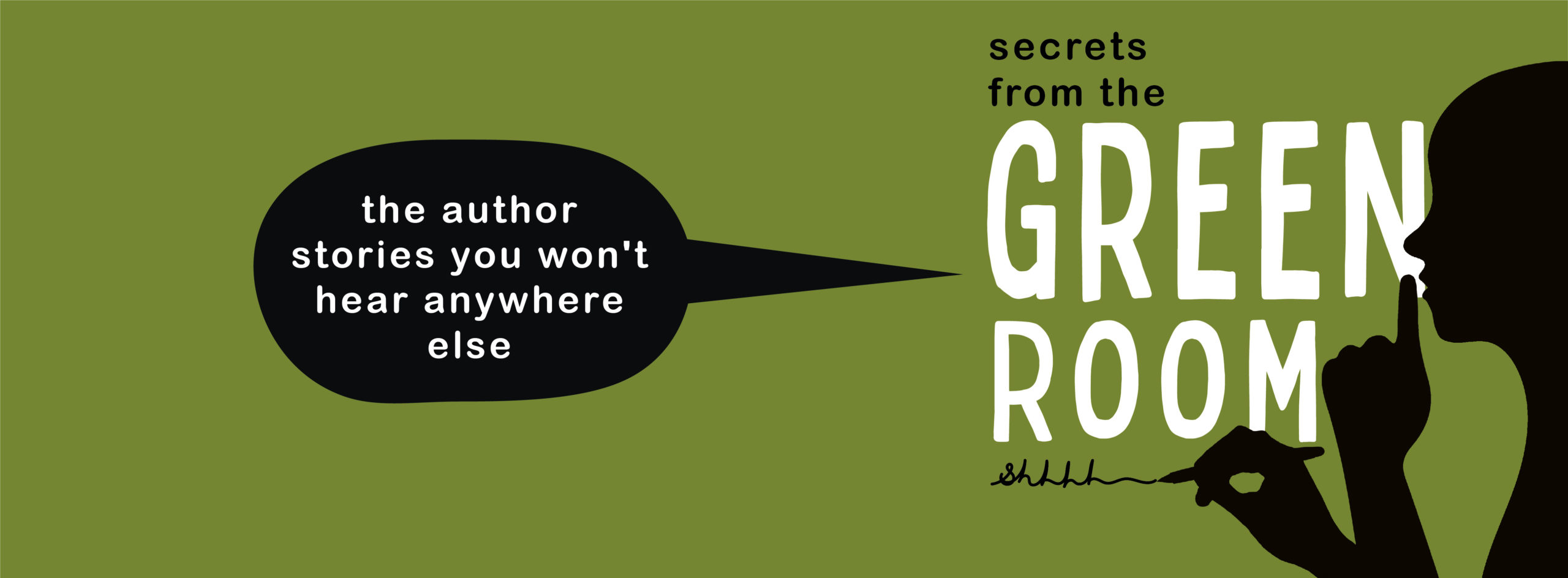Festivaling
My last post started with ‘I bloody love festivals’, and this one could start the same way. I really do. And I was recently at the wonderful Write Around the Murray, which I had long heard such good things about from author friends. They were absolutely right, it’s a cracker. The venues are gorgeous, the audiences were warm, the author line-up was fab, and everything was run so seamlessly by Director Ann-maree Ellis and her incredible team (particular shout out to Chris and photographer Pete, who is responsible for most of the photos here). To top it all off the weather was utter perfection and I could not have had a better time.
Opening night kicked off with yarnbombing from local Wiradjuri educator Ruth Davys, and a panel that I moderated with Paul Dalgarno, Gina Perry and Rijn Collins (who I also spoke with at Sorrento Writers Festival earlier this year). Our topic was ‘Mum’s the Word’. Interestingly, all three of the books have mothers who are absent in some way. All three also have brilliant plot twists which make it bloody hard – I so wanted to ask them questions that I couldn’t! Hard recommend on all three books as book club reads where all the spoilers can be discussed – A Country of Eternal Light (Dalgarno), My Father the Whale (Perry) and Fed to Red Birds (Collins).
